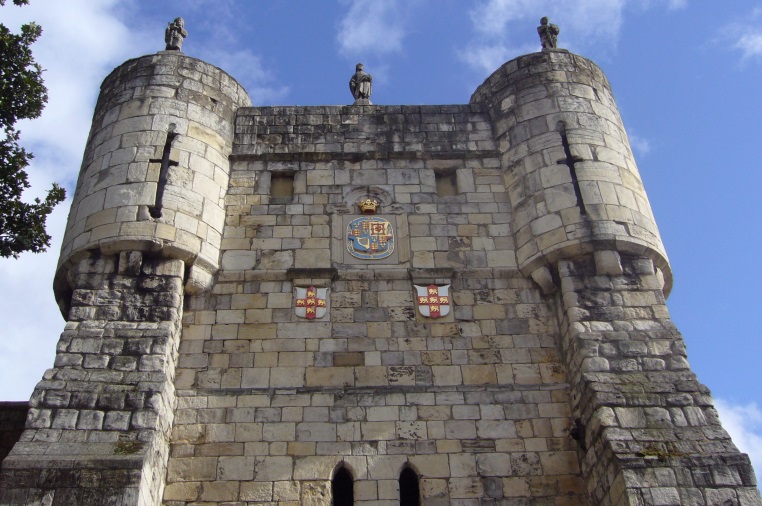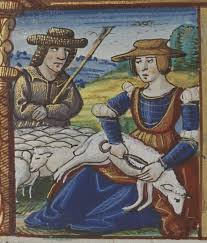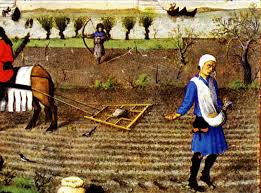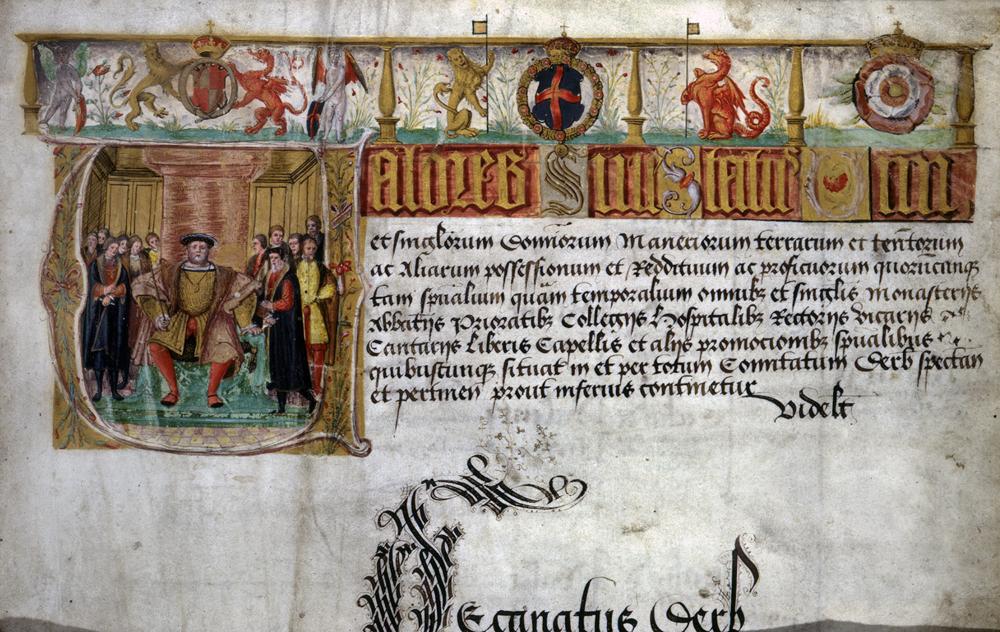The Pilgrimage of Grace
Chapter 2 : Economic Causes
The North was then, as now, poorer than the South and the divide was increasing as more trade flowed to London. York, having been an important mediaeval centre of trade and commerce, was close to bankrupt. The silting up of the River Ouse and the construction of weirs had led to a decline in its income from tolls, and the city was in constant dispute with Hull over the management of the river.

It is perhaps significant that Hull, whilst permitting people to leave the city to join the Pilgrimage, did not declare for the rebels and only capitulated when confronted by force.
There were also agricultural pressures. After the Black Death in the late fourteenth century, with fewer peasants to work the land, the acreage under the plough was significantly reduced. Sheep farming, which required far less labour was introduced, and land that had formerly been cultivated was used for pasture. Wool proved to be hugely profitable, and so more landowners were eager to enclose common land for sheep running.

This did not create too much of a problem, initially, but when the population began to recover in the early years of sixteenth century, the reduction in cultivated land led to pressure on food supplies. In particular, the poor, who could previously scrape by with a small garden and rights of common to keep a pig and gather firewood, found they struggled to subsist without the common land. Sir Thomas More, in his Utopia, refers to the sheep eating up the people.
These factors increased the pressure to raise rents, either to compensate for inflation, or to drive off tenants so that more land could be enclosed for the more profitable sheep farming, where income reflected the increasing value of the fleeces. Attempts to control enclosures and prices by various statutes had failed to help matters, and were seen as insidious methods of imposing new taxes.

Inflation was a factor underlying several apparently different, but actually related, problems. The declining value of money (a new experience for all, as the previous 150 years had been a period of static or declining prices and rent) reduced the value of the income of the lords and gentry, whose wealth came from rents and gressomes (up-front payment to the landlord at the start of a tenancy) set decades, if not centuries before.
The fall in the value of money also fuelled demands for taxation. Henry VIII was both extravagant, particularly in his penchant for French wars, and also, like the other feudal lords, faced with a declining income from his customary rents. In the mediaeval period, it was considered that the "King should live of his own". Taxes were only raised for specific national emergencies and wars. But Henry could no longer "live of his own", and needed to raise taxes with what was considered to be alarming frequency. He was also mesmerised by the wealth that had been revealed to exist within the monasteries by the Valor Ecclesiasticus – a survey carried out from January 1535 into the holdings of the Church.



